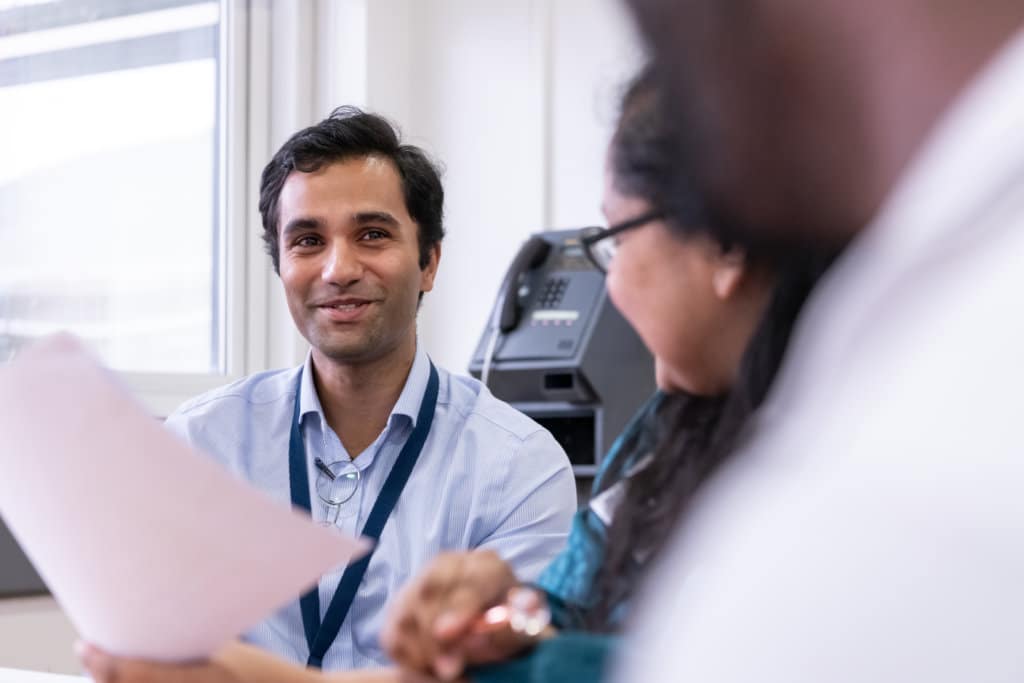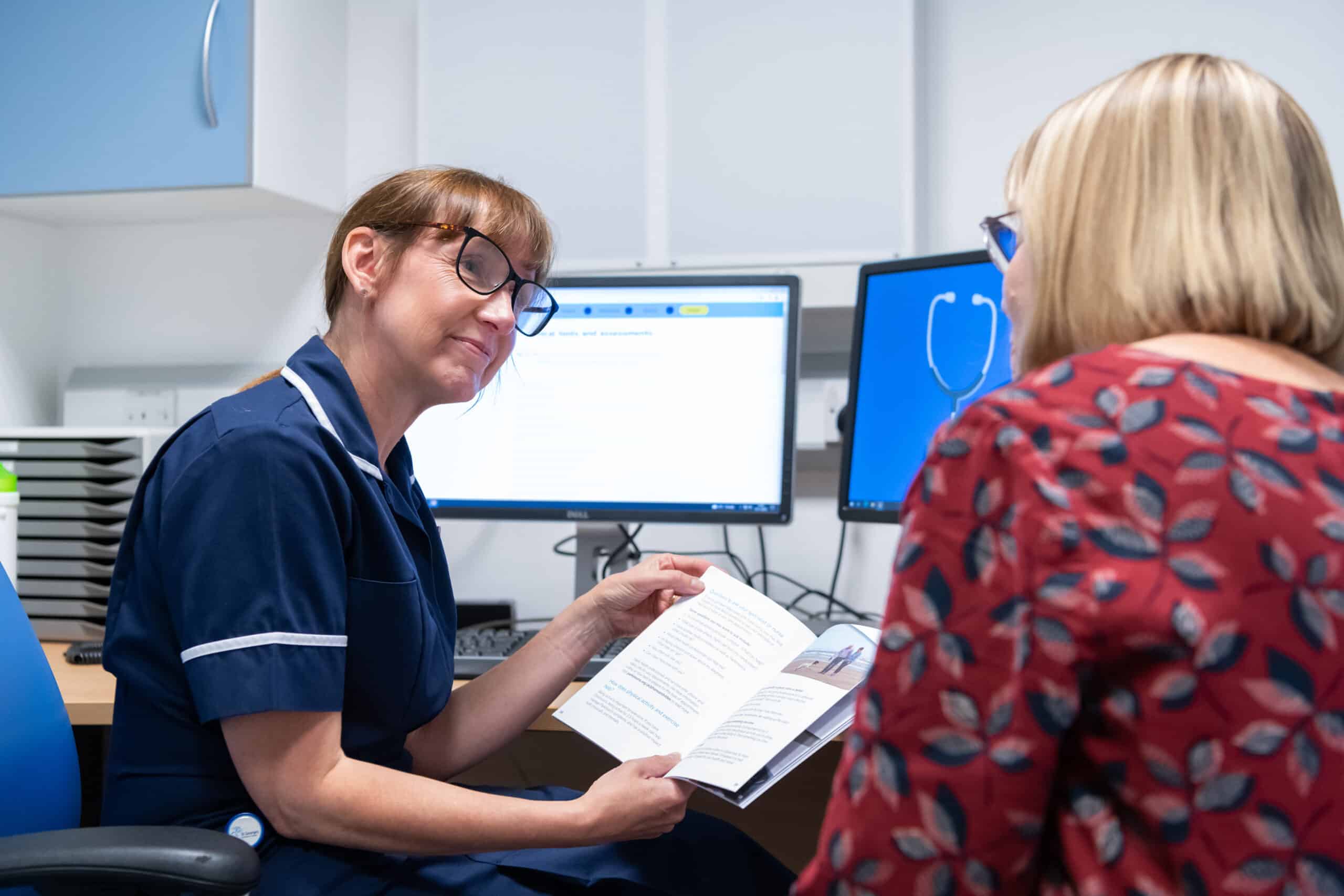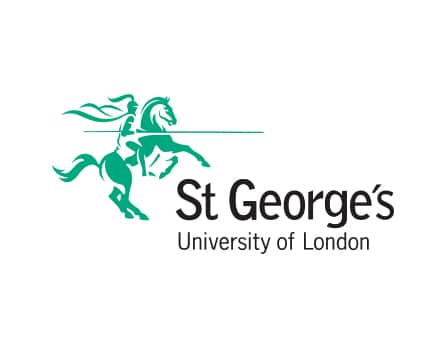The brain is not just the architect of our thoughts and emotions but the silent conductor of our every heartbeat, every breath, and every blink. Its complexity is astounding, and when an injury arises, only clinical neuroscientist professionals can step in, armed with the knowledge and expertise to assess and treat the human body’s most important organ.
As our global population ages, the demand for more neuroscience experts with contemporary expertise of an increasingly diverse range of patients and carers will only increase. From the global city of London, one institution with over two centuries of experience in improving health is working hard to ensure this demand is met for generations to come — starting with a unique new degree programme.
Understanding that the field is becoming increasingly complex and multidisciplinary, St George’s, University of London recently launched the Clinical Neuroscience Practice MSc, an innovative course that teaches students the ins and outs of treating neurological disorders and rehabilitating patients with injured nervous systems.
Central to this MSc is a focus on improving patient care – with the lived experiences of patients and carers at the heart of it. By leveraging a diverse range of academic, clinical, and professional backgrounds — whether doctors, specialists, psychology graduates, allied health professionals or nurses — all perspectives are heard and harnessed to improve the future of neuroscience healthcare.
Perhaps what’s more profound is how this approach tackles inequalities and outdated models of care, particularly through decolonising the neuroscience curriculum. Structural inequalities affect both the neuroscientific research agenda, and clinical care in the neurosciences. With the help of world experts, this MSc examines how this has played out historically, and how to change practice for the better.

St George’s is the only university in the UK focused on healthcare, science, medical education and medical research. Source: St George’s, University of London
The course’s multidisciplinary nature ensures everyone has a place at the forefront of modern neurosciences healthcare. As the MSc is flexible, students can explore the areas that inspire them the most as well.
“We have ensured that the content of the lectures is pretty comprehensive,” explains course co-director Dr. Jeremy Isaacs. “We have focused on common diseases, but we give students the tools to understand rarer conditions when they encounter them. The module choices allow students to specialise towards psychology or health service leadership, although they can do both of these. The dissertation will be the main opportunity for students to study a particular area at significant depth.”
Dr. Isaacs jointly leads this MSc with pride, bringing to classrooms decades of experience as a consultant neurologist and from his clinical research into dementia, delirium, and functional cognitive disorder. “I want to share with students the fantastic clinical neuroscience care that we offer here at St George’s, alongside the insights that my colleagues and I have developed over several years of working in leadership roles in the National Health Service and its associated institutions,” he shares.
Clinical Neuroscience Practice MSc lessons are conducted by the best in the field. A majority are clinicians, senior doctors, allied health professionals, and nurses who give students a glimpse of the field by describing their personal approaches to day-to-day clinical and organisational challenges. Visiting experts are invited to St George’s regularly as well, to share which aspects of their healthcare provision have been successful and which have not.
The neuropsychology module is taught almost exclusively by clinicians who have been through the Doctorate in Clinical Psychology. Course co-director Dr. Catherine Doogan is one of them. She’s treated neurological conditions for over 20 years and is currently the research lead for the Clinical Health and Neuropsychology Department in St George’s NHS Hospitals Foundation Trust — her primary mission in this role is to co-develop placements and research projects centred around the neurosciences.

Applicants to the Clinical Neuroscience Practice MSc have shown keen interest in its tailored clinical placement. Source: St George’s, University of London
It’s very important to us to teach the academic side of how things apply in the real world,” she says. One of the ways she and her team plan on doing this is by keeping the MSc as experiential as can be.
Based in the multicultural hub of Tooting in south-west London, the university’s strategic location plays a pivotal role, as it is situated on the same grounds as St George’s Hospital — one of the largest teaching hospitals in the UK. This proximity guarantees students are immersed in a professional healthcare setting from the very beginning. As patients and their care are at the heart of this course, the course prioritises their perspective in its teaching by inviting patients and their carers to speak to students about their lived experiences.
The theme of real-world experience persists throughout the MSc. All psychology track students undergo a clinical placement, where they will develop hands-on clinical competencies alongside a clinical supervisor. Qualified healthcare professionals can also request a clinical placement to expand on their neuroscience knowledge. The opportunity to build clinical experience helps students take their career to the next step.
“They can also come to any of the faculty, including Dr. Jeremy Isaacs and myself as course directors. Our faculty are approachable and we welcome questions and comments from our students,” says Dr. Doogan. “We will do our utmost to make sure the experience of this MSc is fulfilling and rewarding. To us, the most important outcome is that each student experiences the course as an immersion into a world we are passionate about, and they feel supported to learn and flourish under our academic and pastoral care.”
Want to learn more about studying at the UK’s specialist health university?
Follow St George’s, University of London on Facebook, Instagram, X, YouTube, and LinkedIn











